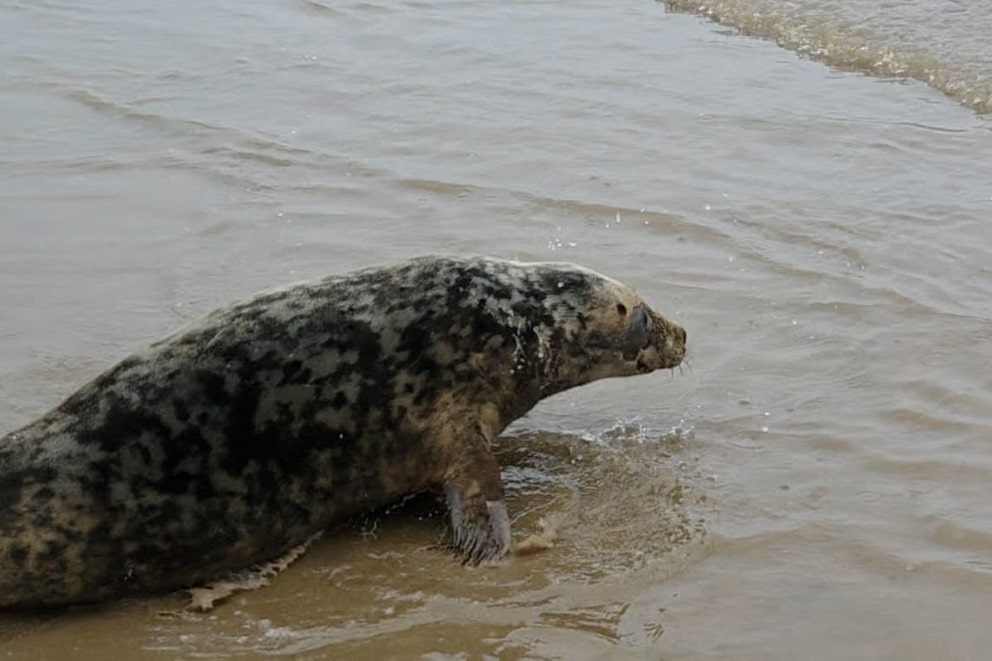Seal pups returned to the wild after treatment at RSPCA centre in Cheshire
Location:
Date:
Five young seals have been released back into the wild, after being treated at the RSPCA’s Cheshire-based Wildlife Centre.
The grey seals - brought into the charity’s Stapeley Grange wildlife centre in Nantwich by the BDMLR (British Divers Marine Life Rescue) had been admitted due to being orphaned, being severely underweight, having respiratory problems or injuries.
It’s a tradition that seals admitted to Stapeley Grange are given names based around a theme. This year staff chose characters from The Muppets - a hugely popular TV show from the 1970s.
Female grey seal Yolanda and males Floyd Pepper, Bert, Fozzie and Ernie were all admitted in March or April this year. By early June, following intensive rehabilitation, they had all put on weight and their condition had improved enough to be released back into the wild on England’s east coast this week.
RSPCA Stapeley Grange Wildlife Centre manager Lee Stewart said: “After months of care and rehabilitation, our final group of grey seal pups for the season has been successfully released back to the East coast.
“Thanks to our wonderful, dedicated team here at RSPCA Stapeley Grange who tube-fed them by hand in the early days and worked hard to get them fit, we've been able to return Bert, Ernie, Yolanda, Fozzie, and Floyd Pepper to the sea where they belong. We would also like to thank the BDMLR teams for rescuing those seals earlier in the year.
“Raising and rehabilitating seals is no easy task - it takes time, effort, and significant resources but every moment and every pound spent is worth it.”
A growing seal population
Caring for seal pups requires specialist facilities and Stapeley is among a handful of wildlife rescue centres in the UK capable of undertaking rehabilitation (other RSPCA wildlife centres which rehabilitate seals include East Winch in Norfolk, Mallydams Wood in East Sussex and West Hatch in Somerset).
A growing seal population has left many rescue centres more stretched than ever as higher numbers of underweight, sick or injured pups require help. But the RSPCA stresses people should be cautious before approaching seal pups that may appear to be abandoned, when they are not.
A seal pup on a beach by itself is not always a cause for concern, as mothers leave their pups alone very early on in their lives. If the pup seems fit and healthy and does not look distressed, it is a good idea to monitor it for 24 hours, as pups are sometimes taken to rescue centres by mistake.
Seals can also have a nasty bite, so it is always best to observe from a distance of at least 100 metres (approx 330ft) - that’s about the same length as a full-sized football pitch. If watching seals, use binoculars and keep any dogs with you on a lead and under control. If members of the public are concerned about a seal they can check on the RSPCA’s website for advice on what to do.
There is also more advice on the RSPCA website about what to do if you see a lone seal pup.
Once tagged and released into the wild, Stapeley Grange staff monitor the seal pups who have been rehabilitated at the centre and staff enjoy hearing of sightings of the animals they have helped.

Contact media and press
If you’re a journalist looking for interviews, quotes or images, get in touch with our media team. Or, if you’re after some quick facts and figures, we have you covered.





